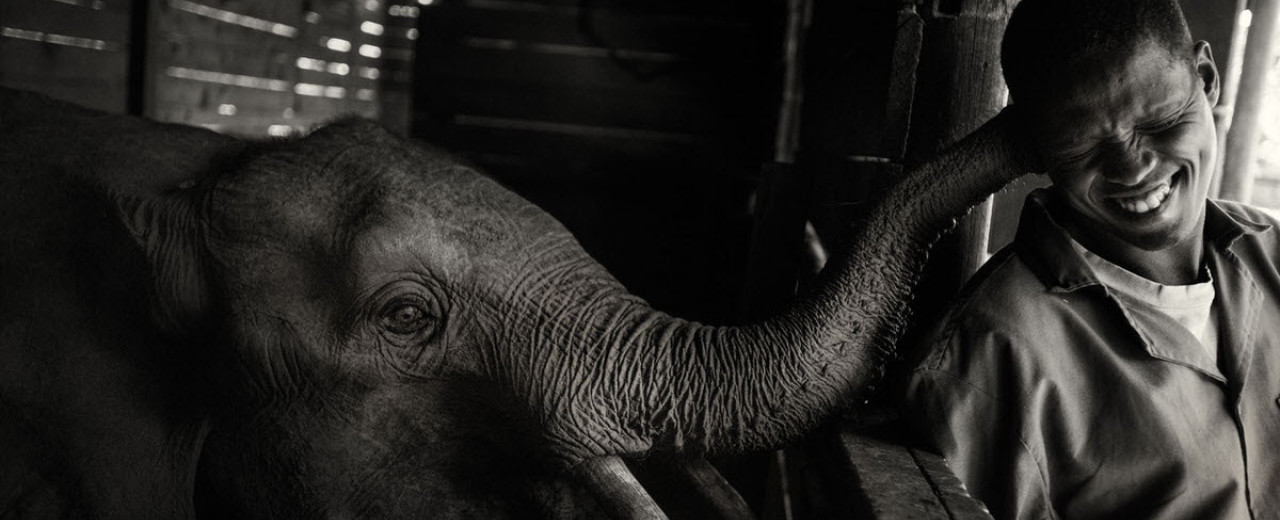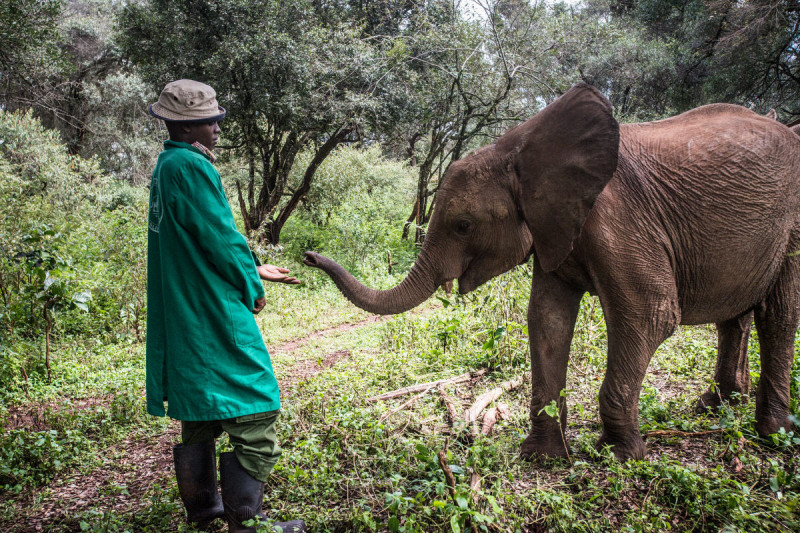Interview with Galgallo Sora - Elephant Keeper, Umani Springs

How long have you been working for the Trust?
I started working for the Sheldrick Wildlife Trust in 2017, as a Keeper at the Nairobi Nursery.
And where are you from, Galgallo?
I am from northeastern Kenya, a place called Marsabit County. I grew up near Marsabit National Park, which is an extensive wilderness with different types of wild animals, including elephants. My school was attached to the park. Sometimes, from our classroom, we could see elephants crossing outside.
How did you become a Keeper?
After school, I knew I wanted to work with wildlife. I had a friend from back home who worked for the Sheldrick Trust, raising the orphaned elephants. I loved what he was doing and asked him to put myself forward for a position as a Keeper.
Initially, my desire was to become a ranger. But being a Keeper is related work. It’s a special job — it is very unique to work with the biggest animals in the world.
Who were the earliest orphans you cared for at the Nursery?
When I joined the Nursery, we had recently rescued an elephant named Maktao and another named Kiasa, both of whom I now help care for at Umani Springs. We also had Emoli and Maisha, two drought victims. They were the most recent rescues who arrived just when I started working as a Keeper.
What do people back home think of your job?
People wonder: How can a person work with wild animals? But then I share my stories and show them pictures, and they know it’s true. Where I come from, years back, pastoralist people used to kill elephants, lions, and giraffes. They were praised for doing that; it meant they were strong.
For me, the son of pastoralists, to be working with animals — it’s really a miracle. My parents say, “The same animals our people used to kill, our son is now working to save!” It is a big change, a good change.
In 2020, you were chosen to graduate to Umani Springs with Luggard and Enkesha. Can you share what that was like?
I had a special bond with Luggard. He was a one-of-a-kind elephant. Although he had been shot by humans, he was always very friendly, very innocent, very respectful. When you called him, he responded. I also had a special bond with Enkesha, who nearly lost her trunk to a snare. When I was given the chance to move with these beautiful, disabled elephants, I was very happy.
We did everything we could for Luggard, but I still wish his story had not ended that way. [Luggard died in 2020; his body had simply gone as far as it could carry him.] Even now when I think about him, I feel like crying.

After Luggard died, we made the decision to bring Kiasa, Maktao, and Kiombo to Umani. How did the other orphans react to them?
I knew Kiasa, Maktao, and Kiombo from my time working at the Nursery. I think they recognised me; Maktao was always particularly friendly, and I could tell that he remembered me.
The Umani herd was so sad after Luggard died, but when these three babies arrived, everyone found happiness again. It was such a good development for Murera, Sonje, Quanza, Lima Lima, Zongoloni, and the other orphans.
Now, a lot of the Umani elephants are living wild. It must be very special to see them reclaiming their independence and even bringing wild friends to visit.
First of all, our aim is to rescue, hand-raise, and eventually release orphaned elephants back into the wild. To me, we have achieved our goal with the ‘night-clubbers,’ the semi-independent orphans who spend their nights out in the forest. Still, I am very happy that they continue to visit us.
You have an exciting suspicion about Sonje, don’t you?
We believe she might be pregnant. She interacted with a big wild bull earlier this year, spending two days and two nights with him out in the bush. It is our hope and our happiness that she will have a baby in about two years.
Do you have a special bond with any of the elephants in particular?
Enkesha gravitates towards me because I came to Umani with her. When I come back from leave, Enkesha always comes right up to me, as if she remembers me and was missing me. But I like working with all the elephants, so I have a bond with each of them.
Being with Enkesha from the Nursery to today, you have been part of her journey from the very beginning. Do you think she is a natural-born leader?
Enkesha has always been very friendly and decisive. She normally leads the group, which makes us hope that she will be a good herd leader, a good matriarch, and a good mother.
If you had to describe your work in a sentence or two, what would you say?
When I am here, my family misses me. When I am not here, my elephant family misses me. I am blessed to have two important families now!
(All photographs © Sheldrick Wildlife Trust)
Sheldrick Wildlife Trust is our chosen charity and you can read more about them here.
